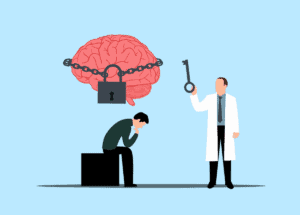
Following a car accident, we look for the injuries we are able to see the broken bones, cuts, and bruising. What of those injuries we cannot see on X-rays or MRIs? The best-documented casualty of tragedy wrecks is perhaps post-traumatic stress disorder (PTSD), and its impact can be as horrific as, if not more than, physical harm. Thankfully, victims in most cases are recoverable from psychological trauma but access to justice can be made difficult.
PTSD is an illness of the mind that comes about after an experience of trauma, for instance, a car accident, an occupational accident, or even a confrontation with death. Flashbacks, nightmares, phobic panic, and intrusive recollection of the event are some among the symptoms. For others, it simply isn’t possible to work, drive, or even clean the house without terror and fear. Can compensation be obtained for PTSD caused by an accident? The answer is: yes but on specific conditions.
Most often with cases of trauma, economic losses (lost wages and medical expenses) and non-economic losses (pain, suffering, and emotional distress) are granted. One of the ones that’s conceivable is PTSD. If you’re diagnosed with PTSD by a licensed therapist or counselor and your attorney can prove that it was a direct result of the accident, then you’re good to go.
But PTSD is not quite such a slam dunk to prove in court. Where your broken arm is going to have a cast put on it and receive an X-ray, mental injury is not going to have a cast applied or receive an X-ray. In order to be hard on a case, strict documentation is absolutely necessary. This is medical records, psychiatric exams, therapy sessions, and even witness statements like co-workers or relatives who’ve witnessed what’s altered about your conduct.
It is now simpler for jurors as well as judges to take into consideration charges of mental illness, especially in 2025, as the mental well-being of so many more individuals comes under the microscope. Courts also have a greater understanding of the fact that trauma does not end once physical injuries heal but extends for months or years. Because of this, legal systems in the majority of jurisdictions are transforming to accept PTSD as a legitimate, compensable injury, provided sufficient evidence exists.
The second is expert testimony through professional witnesses. Professional witnesses like psychologists or psychiatrists need to provide testimony about the nature of PTSD, the diagnostic process of the disorder, and how the disorder affects the life of the individual. Professional testimony can be an influential force where insurers will try to reduce the extent of emotional damage.
There are, however, challenges that come with this. Denial of PTSD claims is a walkover for the insurance companies since it is possible to argue that symptoms are not genuine but fantasized or were due to past illnesses. Others ask for the mental history of the claimant and get previous diagnoses to use in trying to avoid exposure and settle. It is therefore a requirement to engage the services of an attorney handling emotional trauma claims.
Also, the court will establish a deadline on when you can sue the statute of limitations. You will not be going through emotional trauma within a single night, and therefore you will not have any urgency of past activity in accessing legal and medical care. Early diagnosis and documentation will also serve to be useful in proving your case.
And last but not least, PTSD exists and incapacitates. Crash victims owe a tip not only for bodily injury, but for the psychological and emotional toll of crashes. The law is finally catching up to science, opening a window of compensation that is deeper than skin deep.
Final Thoughts
If you’ve been hurt and you know of someone who was hurt following an accident, hope is not lost. Hope is there. Damages can’t rewind the clock and make it all well again, but it will cover therapy, counseling groups, and some peace of mind on the long road to recovery.